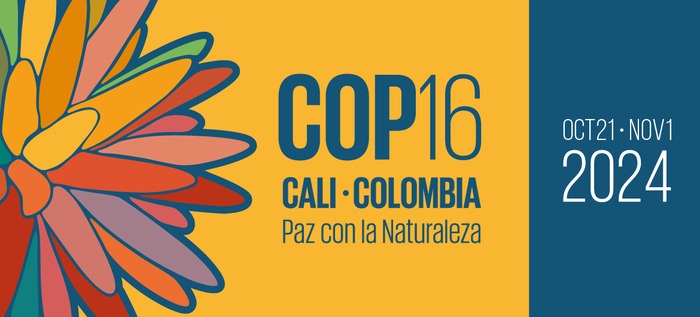During the previous Biodiversity Conference in 2022, the Kunming–Montreal Global Biodiversity Framework (K-M GBF), more commonly known as the Biodiversity Plan, was adopted. K-M GBF established a roadmap, with 4 goals for 2050 aided by 23 targets for 2030, to halt and reverse biodiversity loss. As a result, COP 16 will rotate around 3 key pillars according to the CBD: (1) translating the Biodiversity Plan into concrete national action, (2) mobilizing and bolstering the means of implementation of the 23 targets set for 2030, and (3) accelerating the progress on access and sharing of benefits coming from utilisation of genetic resources[1]. The latter means COP16 is expected to further the operationalisation of a multilateral mechanism on fair and equitable participation benefits derived from the use of digital sequence information on genetic resources. Genetic resources include any material of plant, animal, microbial or other origin containing functional units of heredity[2].
Colombia is one of the most biodiverse countries in the world, accounting for 10% of global biodiversity[3]. However, since 1978, Latin America is said to have registered on average a 94% decrease in monitored wildlife populations, thereby making it the highest regional decline of monitored populations of mammals, reptiles, birds, fish, and amphibians throughout the globe[4]. Therefore, this constitutes an unprecedented opportunity for Colombia to host the biodiversity COP, mixing both the desire to strive for biodiversity preservation and restoration as well as the urgency and relevance of the matter for the region.
Beyond the three pillars that have been set to guide the conference, Colombia’s Deputy Minister of Environment and Sustainable Development, Sandra Vilardy, has defined four themes to prioritize: (1) financing for climate and biodiversity issues, including restoration; (2) fair and equitable sharing of biodiversity benefits; (3) new technological developments regarding gene usage and the discussion of who owns this information; (4) highlighting the role of indigenous communities as biodiversity protectors[5].
The themes and pillars that are set for COP16 are of great interest to 2DII notably regarding means to increase financing for biodiversity, with a specific focus on private finance. We look forward to take part in discussions surrounding this theme.
[1] ‘On the Road to COP 16 in Cali: Three Priority Areas for Action’ (2024), CBD
[3] ‘Colombia – Country Profile’, CBD
[4] Living Planet Report Confirms Accelerated Trend in Biodiversity Loss in Wildlife Populations’ (2022), WWF
[5] Universidad de los Andes (2024)


